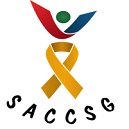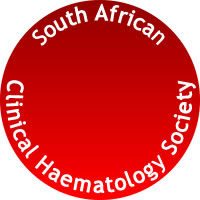Original Research
Comparison of 18F-Fluorodeoxyglucose positron emission tomography/computed tomography and conventional imaging for locally advanced breast cancer staging: A prospective study from a tertiary hospital cancer centre in the Western Cape
Submitted: 07 October 2019 | Published: 10 September 2020
About the author(s)
Paul M. Chilwesa, Department of Radiation Medicine, Division of Radiation Oncology, Faculty of Health Sciences, University of Cape Town, Cape Town, South AfricaRufkah Gameldien, Department of Radiation Medicine, Division of Radiology, Faculty of Health Sciences, University of Cape Town, Cape Town, South Africa
Rachelle Steyn, Department of Radiation Medicine, Division of Nuclear Medicine, Faculty of Health Sciences, University of Cape Town, Cape Town, South Africa
Stuart More, Department of Radiation Medicine, Division of Nuclear Medicine, Faculty of Health Sciences, University of Cape Town, Cape Town, South Africa
Francois Malherbe, Department of Surgery, Faculty of Health Sciences, University of Cape Town, Cape Town, South Africa
Gercios Human, Department of Radiation Medicine, Division of Radiology, Faculty of Health Sciences, University of Cape Town, Cape Town, South Africa
Lynelle Mottay, Centre for Lung Infection and Immunity, Faculty of Health Sciences, University of Cape Town, Cape Town, South Africa
Karis Moxley, Department of Psychiatry, Faculty of Medicine and Health Sciences, Stellenbosch University, Cape Town, South Africa
Anneli Hardy, Department of Statistical Sciences, Faculty of Science, University of Cape Town, Cape Town, South Africa
David Anderson, Department of Radiation Medicine, Division of Radiation Oncology, Faculty of Health Sciences, University of Cape Town, Cape Town, South Africa
Alistair J. Hunter, Department of Radiation Medicine, Division of Radiation Oncology, Faculty of Health Sciences, University of Cape Town, Cape Town, South Africa
Jeannette Parkes, Department of Radiation Medicine, Division of Radiation Oncology, Faculty of Health Sciences, University of Cape Town, Cape Town, South Africa
Abstract
Background: Breast cancer is the second most common cancer in adults and the most frequent cancer diagnosed in women. In South Africa, breast cancer accounts for 38.5% of cancers diagnosed in women. Since the presence, extent and location of distant metastases is one important prognostic factor in locally advanced breast cancer (LABC), accurate staging at diagnosis is crucial to ensure that patients receive the appropriate treatment. Increasing evidence shows that the use of 18F-Fluorodeoxyglucose positron emission tomography/computed tomography (18F-FDG PET/CT) for disease staging of LABC may improve diagnostic sensitivity.
Aim: The aim of this study was to prospectively assess the difference in diagnostic accuracy between whole-body PET/PET-CT and conventional imaging (CI) for staging LABC.
Setting: The breast cancer outpatient clinic at Groote Schuur Hospital in Cape Town, South Africa.
Methods: A total of 42 participants with clinical stage III and a select few stage II breast cancer underwent both 18F-FDG PET/CT and CI.
Results: The 18F-FDG PET/CT found significantly more (p = 0.0077) distant metastatic sites than CI (36% vs. 21%). The 18F-FDG PET/CT upstaged 9 (21.4%) of patients from clinical stage IIIa to stage IIIc, and changed in management of 54% of patients. Thirty-eight per cent of the patients had their clinical stage unchanged. One of five suspected metastatic sites 18F FDG PET/CT on biopsy was positive for malignancy.
Conclusion: The 18F-FDG PET/CT is useful for staging locally advanced non-inflammatory infiltrating ductal carcinoma of the breast. Use of 18F-FDG PET/CT was superior to conventional imaging in assessing metastatic mediastinal lymphadenopathy, but with a poor specificity. The use of 18F-FDG PET/CT in LABC is useful, with the biopsy of isolated suspicious lesions for metastasis increasing its accuracy.
Keywords
Metrics
Total abstract views: 3466Total article views: 4107



